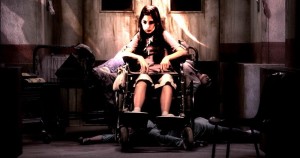
Review: The Gone series by Michael Grant
Pete’s autism is portrayed over and over again as being non-stop pain and suffering. That got incredibly hard to read; do people really think this is what autism is like?

Pete’s autism is portrayed over and over again as being non-stop pain and suffering. That got incredibly hard to read; do people really think this is what autism is like?

Although the book was fun and interesting in places, the disability aspect was very much a freak-show presentation of disability and the disabled experience.

When we talk about disability and sci-fi/fantasy, the first thing many will think of is the magical disability trope. But what does this trope entail and imply? And how can you subvert it?

The portrayal of epilepsy in this book was frustrating and disrespectful. People with epilepsy deserve better than this.

Many characters who may be mentally ill reject treatment out of hand, considering therapy a waste of time and suspecting medication will turn them into a zombie. Why are these narratives so popular? What are the alternatives?

Writing about characters with mental illness can be challenging in various ways. How do you accurately convey a character’s state of mind, without compromising on clarity or excitement? How do you show a character’s skewed perceptions of the world?

The description for this book uses the phrase “brilliant but autistic” to describe its main character, and that’s where our conflicted feelings about Viral Nation start.

The writing and characters are wonderful, but if you’re looking for a book about depression, I’d pass on this one.

Insecure autistic boy meets thoughtful, magical adventure: The Real Boy is now my go-to recommendation when people ask for books with autistic protagonists.

This book portrays its autistic protagonist in ways that will give readers negative, incorrect, and in some cases abusive ideas about autistic people.